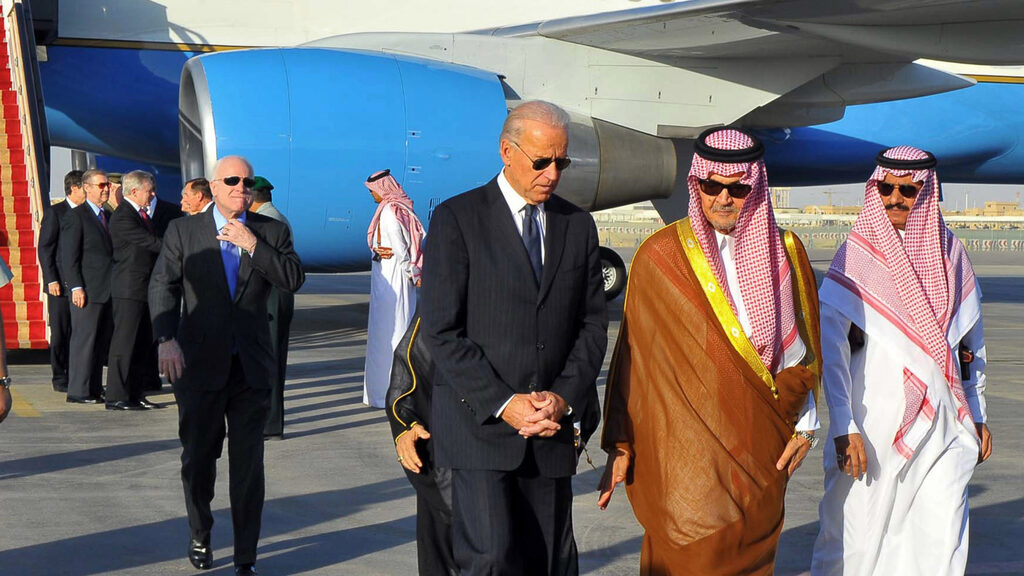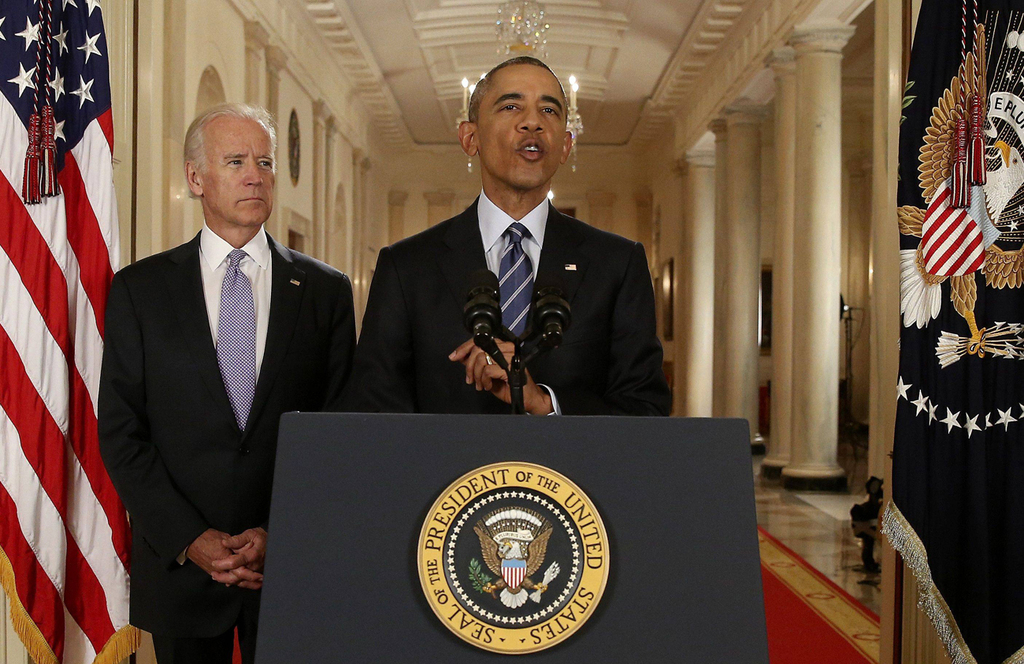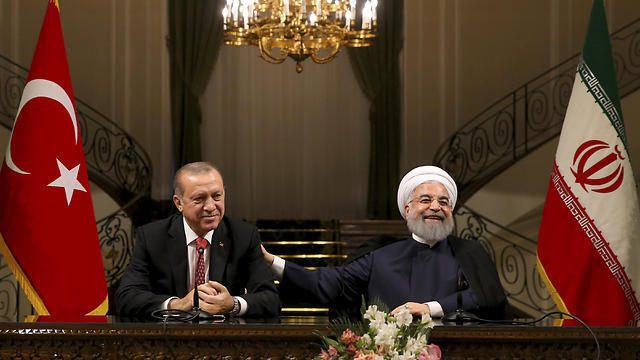American election results have shown that Democratic Party candidate Joe Biden has won the presidency.
The question is: What are the implications of Biden’s election on our country and the region?
3 View gallery


Then-Saudi FM Prince Saud al-Faisal (2nd right) welcomes then-U.S. vice president Joe Biden to Riyadh, Oct. 2011
(Photo: AFP via Getty Images)
As for Saudi Arabia, I do not think that there are going to be any significant changes because the kingdom’s relationship with the United States is deeply rooted and doesn’t simply change from one president to another.
It is true that at the micro level they may become slightly warmer or slightly cooler based on the person sitting in the Oval Office, but they are well-established and stable relations governed by the two countries’ shared interests.
America’s commitment to Saudi Arabia is grounded in the fact that the kingdom is an important regional leader in many different realms: religiously, economically and geopolitically.
There are many significant changes that have taken place in the region, which will garner the attention of the new president. Perhaps the most important one is Iran’s nuclear program.
During the past four years, it has become clear that the mullahs are the number one source of instability in the region (and perhaps in the entire world).
3 View gallery


Then-vice president Joe Biden watches as President Barack Obama announces the Iran nuclear deal, July 2015
(Photo: Reuters)
Iran’s top priority is territorial expansion, exporting its ideology and extending its influence. President-elect Biden will have to decide how to deal with the mullah regime and whether to revive the nuclear agreement or not.
The next most important issue President-elect Biden will have to tend to is Turkey and the Muslim Brotherhood. Turkish President Recep Tayyip Erdoğan has become a threat not only to Middle Eastern countries, but also to European ones.
Biden will have to restore his country’s alliance with its European counterparts in order to weaken Erdoğan and curb the spread of political Islam. If the recent attacks in France and Austria are any indicator, then this process will not be easy.
3 View gallery


Turkish President Recep Tayyip Erdoğan, left, meeting with Iranian counterpart Hassan Rouhani in Tehran
(Photo: AP)
The kingdom is a balanced and influential country and our strategic relations with the United States will not change in the last analysis. Only time will tell whether a smooth and peaceful transition of power takes place in the United States between Trump and Biden.
Regardless, the Kingdom of Saudi Arabia will maintain its close ties with the United States for years to come.
This article first appeared in Arabic in Al Jazeera. Translated to English by Asaf Zilberfarb and reprinted with permission of The Media Line

